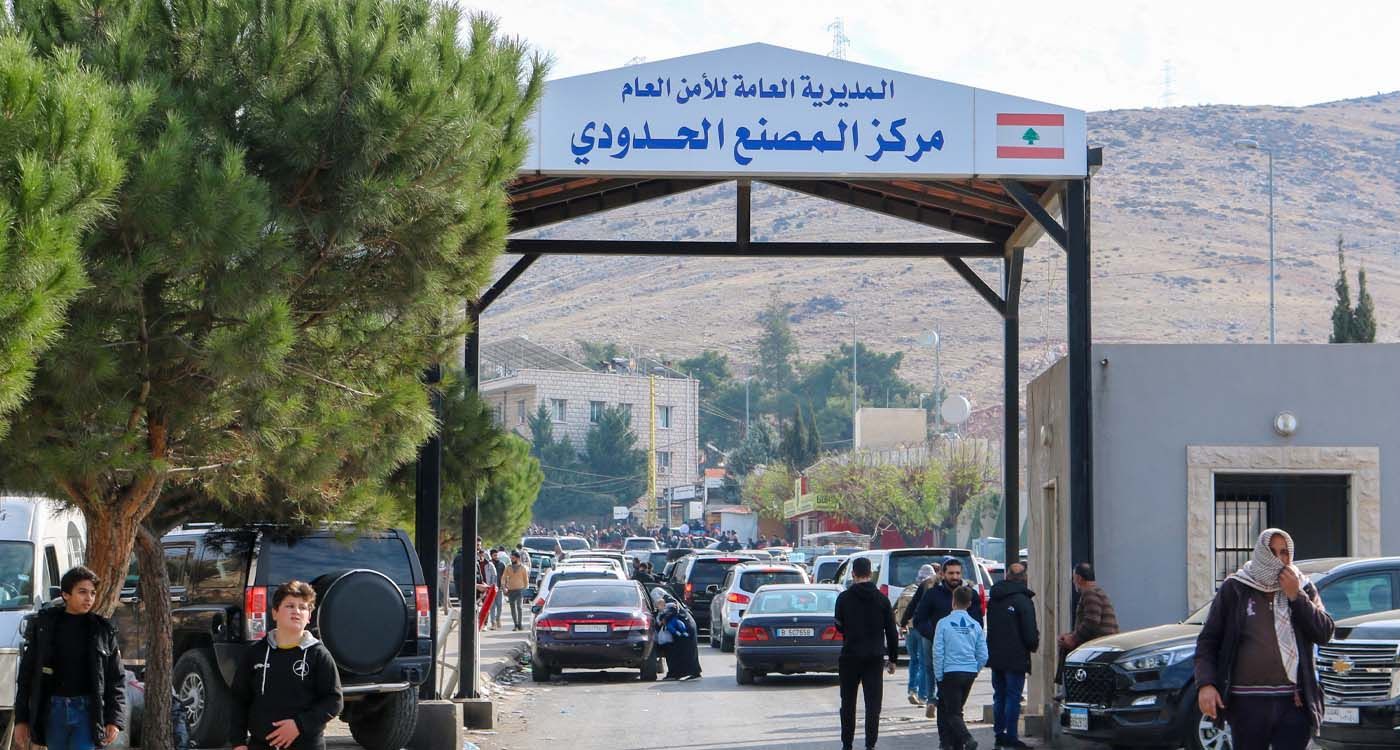
The Lebanese-Syrian border, particularly the eastern sector, is in disarray as thousands of Syrians – mostly supporters of ousted President Bashar al-Assad's regime – illegally enter Lebanon. Security sources anticipate that, in the coming days, Syrian rebel factions will establish control over this border, focusing on the official crossings at Jdeidet Yabous and the Jousieh/al-Qaa area. It is important to note that the Qussayr crossing remains closed to traffic, and the Lebanese General Security has not yet implemented measures to reopen it, as it was targeted by Israeli airstrikes from the Syrian side multiple times, inflicting substantial damage to its infrastructure.
According to scarce information on the situation at the border, Syrians fleeing with Hezbollah have been allowed entry in Lebanon, mainly through the Hermel area. Estimates indicate that between 23,000 and 30,000 Syrians have crossed, most of whom are family members of fighters who supported Hezbollah in Homs, particularly in the Qussayr region. The majority of these individuals are Shiites and Alawites, although reports also mention the presence of Christian groups among the displaced Syrians.
Eyewitnesses have reported seeing these fighters, easily identifiable in military uniforms, within Lebanese territory, driving vehicles that include some previously used for military purposes, particularly by the Assad regime’s intelligence services. While no visible weapons were observed, some sources express concern that they may have brought personal firearms with them. Additionally, there is an apprehension that they could serve as a military support unit for Hezbollah within Lebanon.
At the Masnaa border crossing, the only official entry point between Lebanon and Syria, thousands of Syrians loyal to the Assad regime and Hezbollah – who fought alongside Hezbollah’s and Assad’s forces – are attempting to enter Lebanon to escape potential retribution. Hezbollah seems to be exerting pressure to facilitate their entry, with large groups being forcibly allowed through this crossing, particularly from the towns of Nubl, al-Zahraa and Sayyida Zainab in Damascus. This influx has provoked significant opposition among Lebanese political factions, especially within the opposition, and has raised security concerns. As a result, security measures at the Masnaa crossing have been reinforced, with thousands of Syrians still waiting, as though expecting to be granted entry into Lebanon sooner or later.
Reports indicate that former Assad regime officers pursued by rebels have entered Lebanon, bringing substantial cash estimated in the tens of millions of dollars. Furthermore, the Lebanese security agencies are reportedly aware of their presence. However, it is noteworthy that no Lebanese political or security officials have disclosed clear information regarding this new wave of displacement or the arrival of Syrian military and political figures in Lebanon. Lebanese officials are fully aware of the presence of Assad’s relatives, former security officials and Assad’s loyal officers in the country, but they dare not publicly speak about it for various reasons. Under the directives of caretaker Prime Minister Najib Mikati, they prefer to address this issue without provoking the international community, which is focused on holding Assad loyalists accountable for their crimes, or angering Hezbollah, which is determined to protect these individuals at any cost. Reports suggest that Lebanese officials are negotiating with Hezbollah to reach an agreement allowing Syrian officials loyal to the Assad Regime to remain in Lebanon for a limited period. During this time, they are required to secure a third-country destination and are prohibited from bringing their financial assets with them.




Comments